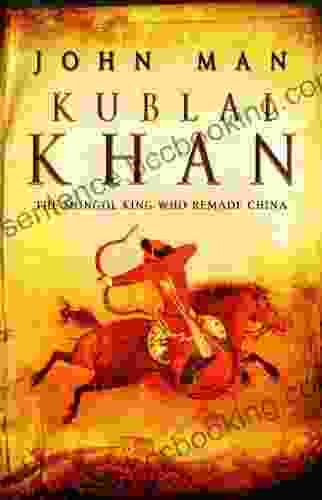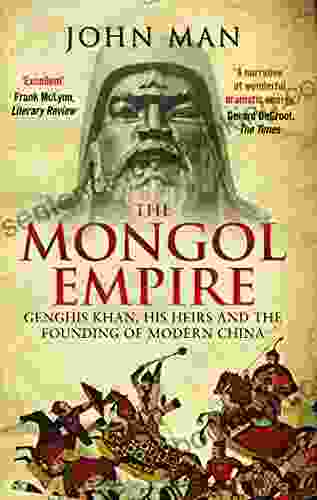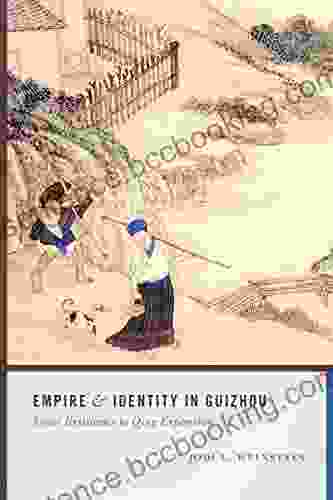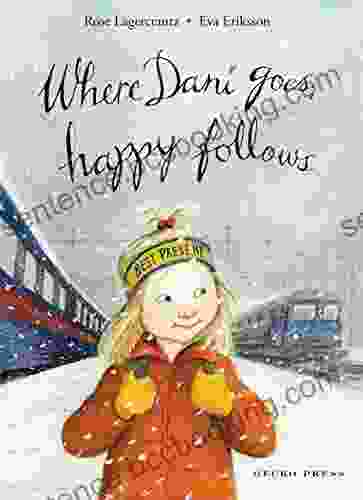Local Resistance to Qing Expansion: Studies on Ethnic Groups in China

Abstract
This article delves into the multifaceted nature of local resistance to Qing expansion in China, providing a comprehensive analysis of the strategies employed by various ethnic groups. It explores the historical context, cultural factors, and geopolitical dynamics that shaped their resistance movements, offering a nuanced understanding of their resilience and the impact of their struggles on Chinese history.
5 out of 5
| Language | : | English |
| File size | : | 4742 KB |
| Text-to-Speech | : | Enabled |
| Enhanced typesetting | : | Enabled |
| Print length | : | 234 pages |
| Screen Reader | : | Supported |
The Qing dynasty (1644-1912) marked a period of significant expansion for the Chinese empire, extending its reach into diverse regions inhabited by numerous ethnic groups. However, this expansion was not met with passive acceptance; it ignited fierce local resistance from communities determined to preserve their autonomy and cultural heritage. This article investigates the intricate tapestry of resistance strategies adopted by these ethnic groups, shedding light on their motivations, tactics, and the historical significance of their struggles.
Historical Context and Geopolitical Dynamics
The Qing dynasty's expansionist policies were driven by a combination of factors, including the desire for territorial control, economic gain, and the consolidation of imperial authority. As the Qing armies advanced into new territories, they encountered resistance from various ethnic groups who viewed their presence as a threat to their sovereignty and way of life. These groups included the Mongols in the north, the Manchus in the northeast, and the Miao and Yao in the southwest.
The Qing government's approach to resistance varied depending on the specific context and the perceived threat posed by each group. In some cases, the Qing employed military force to quell uprisings and establish control. In other instances, they adopted more conciliatory tactics, granting concessions and recognizing the autonomy of certain groups to maintain stability and prevent further conflict.
Cultural Factors and Ideological Motivations
Beyond geopolitical considerations, local resistance to Qing expansion was also fueled by cultural factors and ideological motivations. Many ethnic groups possessed distinct cultural identities, languages, and customs that they sought to protect from assimilation into the dominant Han Chinese culture. Resistance movements often drew inspiration from local traditions, religious beliefs, and historical grievances against Han rule.
For instance, the Miao and Yao peoples of the southwest held strong beliefs in their own cultural superiority and resisted Han influence as a threat to their identity. Their resistance was often couched in religious terms, invoking divine protection and the guidance of their ancestors. Similarly, the Manchus of the northeast sought to preserve their nomadic way of life and resisted Qing attempts to force them to adopt Han agricultural practices.
Resistance Strategies and Tactics
The local resistance movements employed a wide range of strategies and tactics to oppose Qing expansion. These included:
Armed Resistance: In some cases, ethnic groups resorted to armed resistance to defend their territories and way of life. Military conflicts between Qing forces and local militias were particularly common during the early stages of Qing expansion.
Guerrilla Warfare: As the Qing military became more powerful, many resistance movements adopted guerrilla warfare tactics. They used their knowledge of the local terrain to launch surprise attacks on Qing troops and disrupt their supply lines.
Diplomatic Maneuvers: Some ethnic groups engaged in diplomatic maneuvers to gain support from other powers and undermine Qing authority. They formed alliances with neighboring states and appealed to foreign governments for assistance.
Cultural Resistance: Local resistance also manifested in cultural forms, such as the preservation of traditional languages, customs, and religious practices. Groups actively resisted the imposition of Han Chinese norms and sought to maintain their own cultural autonomy.
Impact and Significance
The local resistance movements had a profound impact on the course of Qing history and the development of modern China. Although the Qing eventually succeeded in incorporating most of the resisted territories into its empire, the struggles of these ethnic groups left a lasting legacy:
Preservation of Cultural Diversity: The resistance movements played a crucial role in preserving the cultural diversity of China. By resisting assimilation, ethnic groups ensured the survival of their unique languages, traditions, and customs.
Formation of National Identity: The struggles of ethnic groups against Qing expansion contributed to the formation of a broader Chinese national identity. The shared experience of resistance against a common enemy fostered a sense of unity and solidarity among different ethnic communities.
Influence on Modern Nationalism: The resistance movements of the Qing period became a source of inspiration for later nationalist movements in China. They provided a model for collective action and resistance against foreign imperialism and oppression.
The local resistance to Qing expansion in China was a complex and multifaceted phenomenon that involved a diverse range of ethnic groups, strategies, and motivations. By examining the historical context, cultural factors, and geopolitical dynamics that shaped these resistance movements, we gain a deeper understanding of the resilience and determination of the ethnic groups who fought to preserve their autonomy and cultural heritage. Their struggles not only had a significant impact on Qing history but also left a lasting legacy on the formation of modern China.
References
- He, M. (2018). Local Resistance to Qing Expansion in Southwest China: The Miao and Yao Uprisings. Routledge.
- Liu, X. (2015). The Manchu Resistance to Qing Expansion in Northeast China. University of California Press.
- Sun, J. (2021). Cultural Resistance and Ethnic Identity in Qing China. Brill.
5 out of 5
| Language | : | English |
| File size | : | 4742 KB |
| Text-to-Speech | : | Enabled |
| Enhanced typesetting | : | Enabled |
| Print length | : | 234 pages |
| Screen Reader | : | Supported |
Do you want to contribute by writing guest posts on this blog?
Please contact us and send us a resume of previous articles that you have written.
 Book
Book Novel
Novel Page
Page Chapter
Chapter Text
Text Story
Story Genre
Genre Reader
Reader Library
Library Paperback
Paperback E-book
E-book Magazine
Magazine Newspaper
Newspaper Paragraph
Paragraph Sentence
Sentence Bookmark
Bookmark Shelf
Shelf Glossary
Glossary Bibliography
Bibliography Foreword
Foreword Preface
Preface Synopsis
Synopsis Annotation
Annotation Footnote
Footnote Manuscript
Manuscript Scroll
Scroll Codex
Codex Tome
Tome Bestseller
Bestseller Classics
Classics Library card
Library card Narrative
Narrative Biography
Biography Autobiography
Autobiography Memoir
Memoir Reference
Reference Encyclopedia
Encyclopedia Stephen Grcevich Md
Stephen Grcevich Md John Edmund Delezen
John Edmund Delezen Joanna Cole
Joanna Cole Michael K Deaver
Michael K Deaver Jimmy Breslin
Jimmy Breslin John Guttag
John Guttag John Darnton
John Darnton Joel A Rippel
Joel A Rippel Jonathan M Katz
Jonathan M Katz Roy Williams
Roy Williams Mark Salzman
Mark Salzman Matthew Mcgough
Matthew Mcgough Scott Carrier
Scott Carrier Joel Peterson
Joel Peterson Philip Wylie
Philip Wylie Jim Zub
Jim Zub Joel Best
Joel Best Mary Jackson
Mary Jackson John E Miller
John E Miller John H Carroll
John H Carroll
Light bulbAdvertise smarter! Our strategic ad space ensures maximum exposure. Reserve your spot today!

 Camden MitchellUncover the Enchanting World of "The Wolf King": A Prepost Fable for Unusual...
Camden MitchellUncover the Enchanting World of "The Wolf King": A Prepost Fable for Unusual... Eric NelsonFollow ·14.7k
Eric NelsonFollow ·14.7k William FaulknerFollow ·4.3k
William FaulknerFollow ·4.3k Jarrett BlairFollow ·2k
Jarrett BlairFollow ·2k Eliot FosterFollow ·19.1k
Eliot FosterFollow ·19.1k Asher BellFollow ·8.7k
Asher BellFollow ·8.7k Richard SimmonsFollow ·9.6k
Richard SimmonsFollow ·9.6k Federico García LorcaFollow ·3.9k
Federico García LorcaFollow ·3.9k Devin RossFollow ·5.5k
Devin RossFollow ·5.5k

 Jesus Mitchell
Jesus MitchellDiscover the World of Satisfying Meals with Or...
In a world where culinary creations often...

 Darius Cox
Darius CoxJourney into the Extraordinary Life of Kublai Khan: An...
Immerse Yourself in the Fascinating...

 Gil Turner
Gil TurnerThe Fourth Industrial Revolution: The Precariat and the...
In his groundbreaking book, The Fourth...

 Jonathan Franzen
Jonathan FranzenGenghis Khan: His Heirs and the Founding of Modern China
Genghis Khan, the...

 Eugene Powell
Eugene PowellJourney Through the Golden Age of the Ottoman Empire with...
Delve into the Enchanting World of the...
5 out of 5
| Language | : | English |
| File size | : | 4742 KB |
| Text-to-Speech | : | Enabled |
| Enhanced typesetting | : | Enabled |
| Print length | : | 234 pages |
| Screen Reader | : | Supported |












